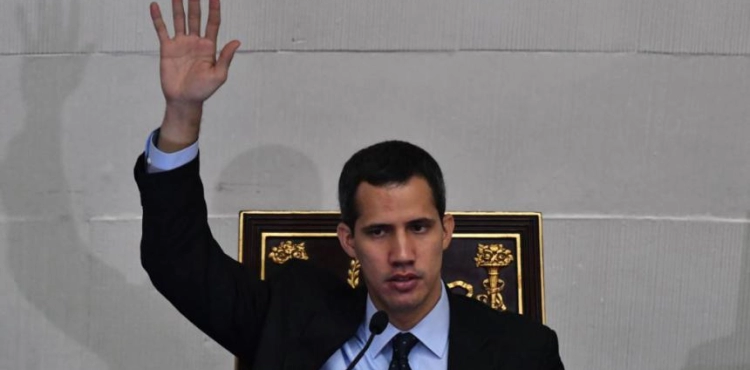Madrid, Venezuela, Paris, Berlin and other European countries officially recognized Venezuelan opposition leader Juan Guido as transitional president after President Nicolas Maduro refused to call for presidential elections within the deadline set by European countries.
Russia, one of Maduro´s main allies, hastened to denounce the matter. Kremlin spokesman Dmitry Peskov said: "We consider the attempts to grant the usurped power legitimate as a direct and indirect intervention in Venezuela´s internal affairs."
Washington, which had admitted Gawaido since the first day to declare himself as acting president, reiterated that resorting to the US military remains a "choice" in the face of the crisis.
On Monday morning, Spain, home to 167,000 Venezuelans, was the first to respond to Maduro´s rejection of his 26 January deadline. Spanish Prime Minister Pedro Sanchez said that "the government of Spain officially recognizes the President of the Venezuelan National Assembly (Parliament) Juan Guido Marquez as the head of the mandate (period of transition) in Venezuela," calling for Guido to hold presidential elections "free and democratic as soon as possible."
After Spain´s position, the United Kingdom, France, Germany, the Netherlands and Portugal recognized Guaydou, who in turn sent an ultimatum to Maduro. Sweden, Denmark and Lithuania also recognized the legitimacy of Guadeloupe, as well as Austria because "the Maduro regime has so far refused to accept free and fair presidential elections," said Chancellor Sebastian Cortes.
But the EU is still divided, especially as countries such as Italy and Greece are still waiting for developments.
Oil prices rose Monday in Europe, hitting their highest level in the year against the background of the crisis in Venezuela, which has a huge reserve and continues to decline production.
The president of the Venezuelan parliament, which is dominated by the opposition, declared himself acting president on Jan. 23, saying Maduro had taken power when he was re-elected for a new term.
Maduro rejected the European ultimatum in an interview with Spanish television station La Scista on Sunday night.
In addition to the United States and Canada, Guido has admitted 12 Latin American countries that belong to the Lima group, including Colombia and Brazil, which are aligned with Venezuela.
Ottawa is hosting a crisis meeting by the foreign ministers of the Lima Group, which will be attended by US Secretary of State Mike Pompeo.
Maduro, 56, who has the support of Russia, China, North Korea, Turkey and Cuba, accuses the United States of orchestrating a coup.
In an interview with an Italian television channel, Maduro said he had sent a message to Pope Francis asking for help and mediation. "I told him that I was in the service of Christ´s cause," he said.
"I asked the pope to do his utmost and help us in the path of dialogue," he said.
Saturday´s gathering drew thousands of supporters in Caracas and urged the army to close ranks, while Guido offered an amnesty for the troops he joined.
On the same day, Guido announced to his supporters that humanitarian assistance would arrive in the coming days to centers outside the border, specifically in Colombia, Brazil and one of the Caribbean islands, as the economic crisis in Venezuela and the shortage of food, medicine and inflation.
Guido called on the military to allow the aid, while Maduro said it was paving the way for US military intervention.
The Spanish prime minister announced on Monday that he planned to present to the European Union and the United Nations an "international aid plan to accelerate the serious humanitarian crisis in Venezuela."
Guido said Saturday that February would be "decisive" and called on his supporters to hold a new demonstration on December 12.












